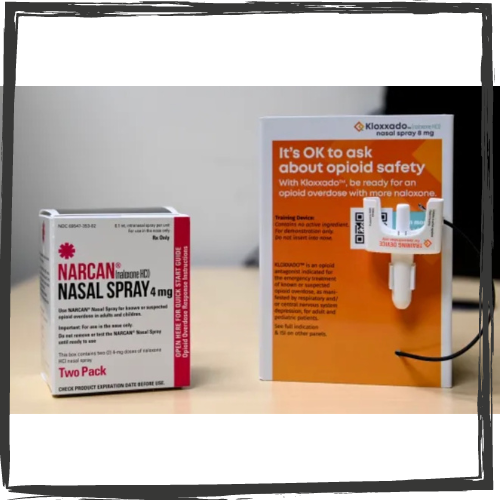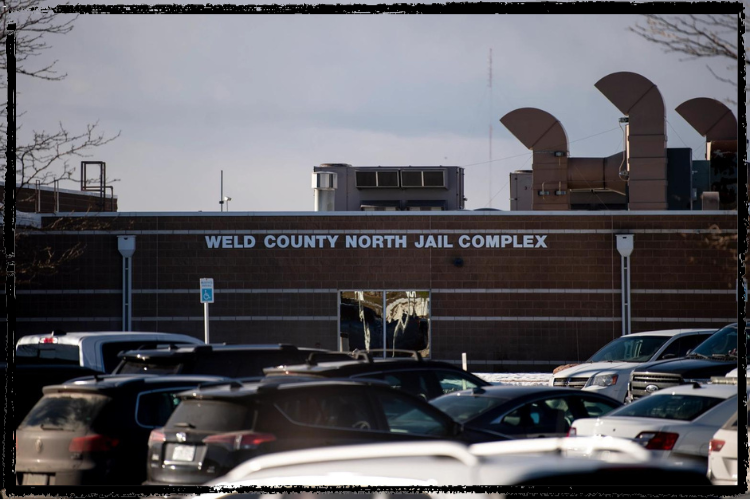By Morgan Mckenzie, Greeley Tribune
Funds will provide education, medication and treatment
A Weld County coalition is weeks away from receiving the first round of opioid settlement funds meant to combat the opioid crisis through treatment, prevention and education. Colorado Attorney General Phil Weiser said Weld County is leading the state in developing collaborations and providing access to services — a trend he hopes to see implemented statewide.
In August 2021, Weiser’s office announced settlements with major drug manufacturers and distributors, including Johnson & Johnson. Initially, the developed framework planned to distribute about $400 million, but that amount has since increased. The framework is now in operation to distribute more than $520 million dollars to 19 regions during the next 18 years.
Throughout the past year, representatives from law enforcement, human services, legal services, public health and elected offices formed the Weld County Regional Opioid Council to create a work plan and budget for distributing the settlement funds, according to Weld County Public Health spokesman Eric Aakko.
Council members include Aakko, Greeley Mayor John Gates, Evans Police Chief Rick Brandt, Weld Assistant District Attorney Robb Miller and other officials from Weld, Windsor, Eaton, Firestone, Hudson, Fort Lupton and Nunn.
After numerous meetings, the state-level opioid council has approved Weld’s work plan. The budget is funding treatment efforts for people struggling with opioid use disorder (OUD), which includes adding medically-assisted treatment (MAT) in the Weld County Jail. Another portion of the money will fund training, education and awareness initiatives.
Weld County partners receiving the majority of settlement money are the Weld County Jail, North Range Behavioral Health, North Colorado Health Alliance and local law enforcement.
“It’s exciting how 15 diverse individuals who make up the council, how we were able to come together, work collectively and very efficiently come up with proposals, vote on them and come up with a plan to meet the state’s deadline,” Aakko said.
Aakko feels the council did everything “efficiently and effectively” to meet the required deadline for the work plan back in September. Now, the officials are waiting for those funds to come from the third-party fund administrator.
Within the next couple weeks, the council is set to receive a little more than $1.2 million for the first year — the first portion of the $8.8 million settlement it will acquire throughout the next 18 years.
“We’re anticipating funding for 18 years,” Aakko said. “We’re going to have higher amounts up front, and then it’s going to slowly start to go down over the years, but we’ve been told we should anticipate kind of this $1.2 million for around eight years or so.”
Top priority is treatment
In 2021, 68 Weld residents died from opioid overdoses, a rate nearly doubled from 2020.
Weiser highlighted bringing MAT to every jail statewide as one big change to fight the opioid crisis. “I’ve heard different numbers for how many jails in Colorado have adopted it, but I know it’s not 100%,” Weiser said, “and we’re going to work hard to get that number to 100%.”
The majority of Weld County’s settlement money is for treatment, according to Aakko, who said $832,000 of the total funds are going to multiple treatment areas. A bulk of the money is bringing MAT into the Weld County Jail to help those incarcerated who are struggling with opioid addiction.
“We have made a lot of progress over the last year increasing the money, implementing the governance model, working to get the money out the door,” Weiser said. “The next critical step is starting to spend the money in the areas that we know need progress.”
MAT uses FDA-approved medications to treat opioid, alcohol and nicotine use disorders by correcting physiological abnormalities, according to a substance abuse expert from the Colorado Opioid Synergy for Larimer and Weld counties (CO-SLAW). CO-SLAW is a network of MAT clinics that offer medication treatment and counseling services to northern Colorado residents. Three medications are prescribed:
- Methadone, which helps with cravings and withdrawals,
- Injectable Vivitrol, which helps with cravings, and
- Buprenorphine, which helps with cravings and withdrawals.
The Weld County Jail is set to receive $415,000 from the first set of funds to pay a medical professional to oversee their MAT program. The balance will go to purchasing the medication, Weld County Sheriff’s Captain Matthew Turner said, but the settlement won’t completely cover the cost of those services, he said.

Turner can’t say for certain how much MAT will cost, considering the program is new. However, he feels it’s going to have a huge impact on jail operations and that it would be better for another entity to handle it.
“We don’t really know what it’s going to take,” Turner said. “This is a huge undertaking, and it basically turns the jail into the treatment center, which I don’t think it’s supposed to be.”
Recent legislation signed into law requires the Weld County Jail to take on the MAT program since the sheriff’s office is receiving certain types of funding from Jail-Based Behavioral Services, Turner explained.
The decision to adopt MAT stems from staying in compliance with state statute, Turner said, but also to maintain funding from Jail-Based Behavioral Services, a tool used to help incarcerated people access community resources after their release.
MAT operations at the Weld County Jail, funded by the settlement, are expected to be introduced at the beginning of 2023, according to Turner. “With this council, these funds are not guaranteed every year,” he said. “And in fact, whatever funding comes from this will eventually taper off and disappear. There are lots of ways to get grants and get money for this, but eventually, the Weld County community will feel the impact of this bill. They’ll feel, basically, that they have to fund this program for the jail and for jails across Colorado.”
Many other counties, including Larimer, have already adopted MAT programs in their jails and found them to be beneficial. In partnership with CO-SLAW, the Larimer County Jail MAT program has reduced recidivism, relapses and overdose deaths, Larimer County Sheriff’s Lt. Staci Shaffer previously told the Tribune. CO-SLAW also helps cover the cost of treatment for participants in the Larimer County Jail’s program through grants.
Weiser praised Larimer and Weld’s leadership in treatment through the “special initiative” of CO-SLAW. He commended the efforts of the providers to create entry points into treatment at jails and emergency rooms.
“Hopefully, the money that goes through Larimer and Weld will even further advance the leadership that these two counties have already shown in this area,” Weiser said.
Putting money toward recovery for those who struggle with OUD and any co-occurring mental health issues is another priority among Weld officials, Aakko said. This includes funding case management and professional staffing with mental health care providers in the community.
Education, training and law enforcement tools
Weld County’s portion of the settlement funds will provide incentives for people who work in behavioral health, such as peer counselors, to further increase their training to address OUD. Funds will also create scholarship money to help more people become certified addiction counselors.
Aakko said officials also plan to hire a substance use disorder health educator, who will work closely with county partners and communities to increase education and awareness around treatment, including what types of treatment are available for different substance use disorders. This includes opioids, alcohol and other substances.
To further educate the community on opioid use, the settlement money is supporting the formation of an anti-stigma campaign to inform people about the different ways to seek treatment. Weiser’s office is also looking to finalize a prevention program regarding the risks of fentanyl geared toward young people.
A portion of Weld’s settlement funds will benefit law enforcement. Local law enforcement will receive mass spectrometers, a tool that allows them to identify various drugs on the scene without having to wait for lab analysis, according to Aakko.
First responders statewide have received large amounts of naloxone, commonly known by the brand name Narcan, which is administered to a person to reverse an opioid overdose. Narcan has also become easily accessible with many organizations and pharmacies distributing it to residents across the state to carry in case of an emergency.
Public health emergency
In 2021, 1,943 Coloradans died from overdoses — a 50 percent increase from 2020, according to recent state data. Due to the high death rate, the attorney general’s office has continued to make the opioid crisis a top priority, said Weiser. The settlement funds are giving his office the tools to remain vigilant in addressing the crisis.
There are two main drivers in the opioid crisis: fentanyl poisoning and OUD.
When a person dies after purchasing what was believed to be a Xanax pill that actually contained fentanyl, that’s not considered an overdose death. Weiser said that is deemed fentanyl poisoning.
Death rates continue to rise. According to Weiser, “One driver is a lack of awareness of these pills. If you are not getting a prescription pill from a legitimate provider, you’re probably getting fentanyl that can kill you, and you’re playing Russian roulette.”
The second driver is people struggling with OUD who continue to seek pills as a way to feed an addiction. Since the pills are increasingly fentanyl-based, meaning they’re 50 times or more potent than heroin, overdose deaths are skyrocketing. Cartels are supplying the pills, and drug trafficking organizations are distributing them across the state.
“This needs to be a joint effort across the board from citizens to those in the public health world to those in law enforcement,” Weiser said. “We need to recognize this crisis for what it is. If you look at the last year … more people died of drug overdoses — most of these are opioid overdoses, increasingly, fentanyl — than who died of gun violence deaths and car crashes combined. This is a public health emergency.”
Distribution of funds
In Colorado, the funding will work as a multi-pronged strategy starting with educating people on opioids, going after cartels and distributions and helping people struggling with addiction find the treatment they need, according to Weiser.

Aakko said there are a number of municipal governments that have decided it’s more efficient to place money into the council for fund management and dispersal. Other municipalities have opted out, meaning those places will still receive settlement money as individual municipalities.
“Our pot of money may go up or down depending on how many additional municipal governments decide to join the region,” he said. “A majority of them have joined the council, but there are a few that have decided to just take their own share.”
The municipalities taking their share are only receiving tens of thousands of dollars, according to Aakko. Later down the line, he said they are allowed to decide to place additional money in the regional pot after a year or two on their own.
“We’re working on getting final visibility on when the money’s going to start flowing,” Weiser said. “And that money will flow both to the regions pursuant to having their plan approved and also to local government.”
We republished this article through a partnership with the Colorado News Collaborative. Read the original article here.


